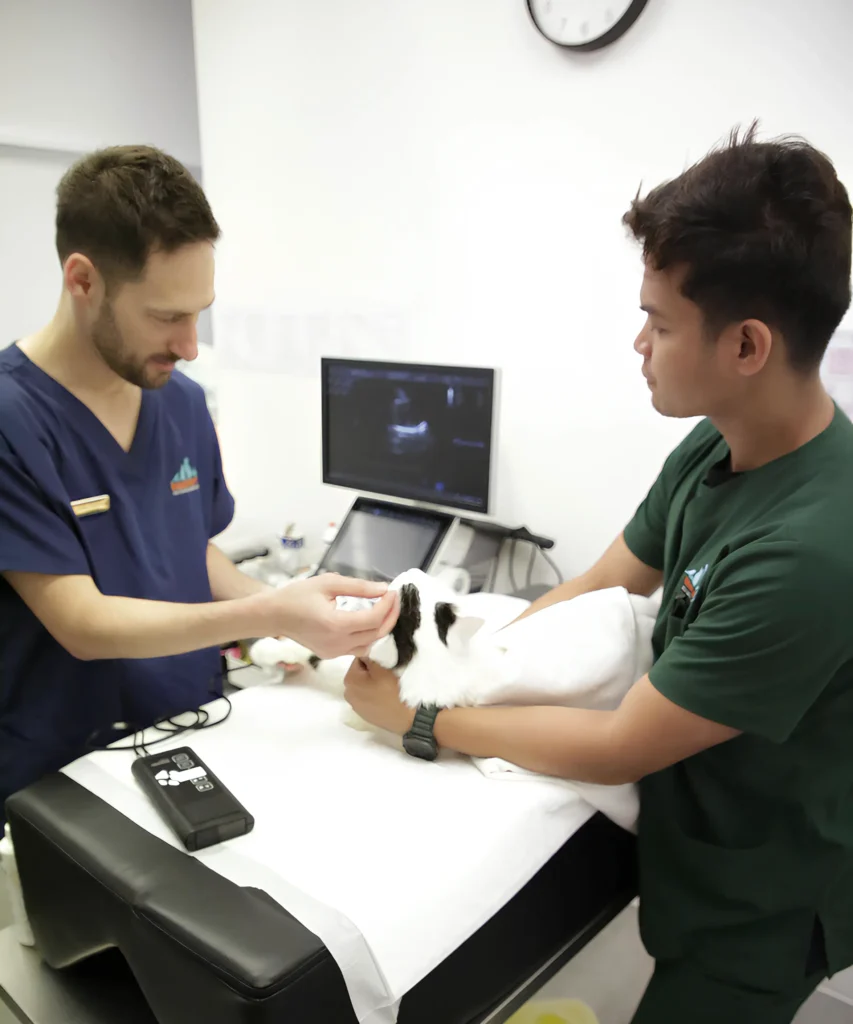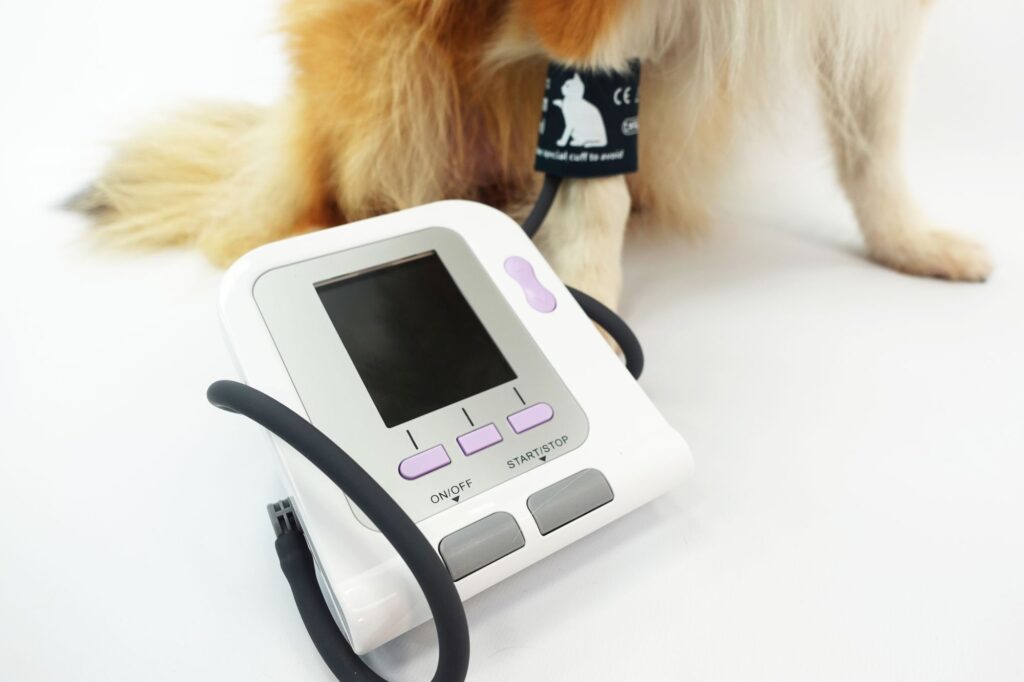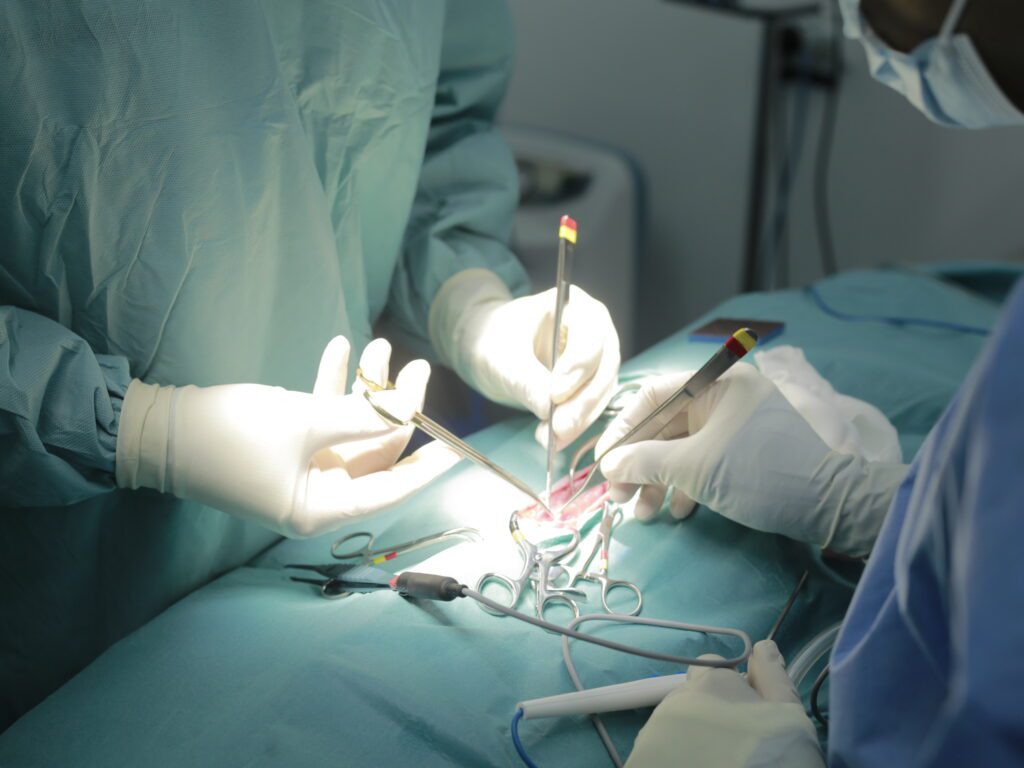

Dr. Omri Belachsen is a board-certified veterinary cardiologist (Diplomate of the European College of Veterinary Internal Medicine – Companion Animals, Cardiology). He graduated with a Doctor of Veterinary Medicine (DVM) degree and went on to complete a rigorous residency in cardiology at a leading European specialist centre, where he trained extensively in advanced diagnostic imaging, interventional cardiology, and management of complex heart disease in small animals.
When your pet shows signs of heart disease such as coughing, laboured breathing, exercise intolerance, fainting, or a heart murmur you want confidence in diagnosis and treatment. At Beecroft’s Cardiology Department, we combine specialist expertise, advanced diagnostics, and compassionate care to provide comprehensive heart health services for dogs, cats, and small mammals. Our mission is early detection, personalised treatment and ongoing monitoring to help your pet maintain the best possible quality of life. We work closely with imaging, internal medicine, surgery, and critical care teams to deliver seamless, holistic care.

Our mission is early detection, personalised treatment and ongoing monitoring to help your pet maintain the best possible quality of life. We work closely with imaging, internal medicine, surgery, and critical care teams to deliver seamless, holistic care.
At Beecroft, we offer a range of neurology and neurosurgery services to address various conditions affecting your pet’s brain, spinal cord, and nervous system:
We perform comprehensive echocardiography (2D, M‑mode, Doppler, color flow, tissue Doppler) to visualise chamber sizes, wall thickness, valve motion, and blood flow. Echo is central to diagnosing structural heart disease and valve disorders.
If you have any concerns about your pet’s neurological health, feel free to contact us for a consultation with our veterinary neurology specialist.


Specialist expertise & credentials in veterinary cardiology.
Comprehensive diagnostics under one roof (echo, ECG, Holter, radiography, advanced imaging).
Integrated, multidisciplinary care with internal medicine, imaging, surgery, and critical care.
Personalised treatment plans and transparent communication.
Detailed reports for owners and referring veterinarians; clear follow‑up roadmap.
State‑of‑the‑art equipment and continuously updated techniques.
Commonly every 3–6 months, tailored to disease type, severity, and response.
Based on necessary diagnostics and treatments. After the initial consult, you’ll receive a detailed estimate before proceeding.